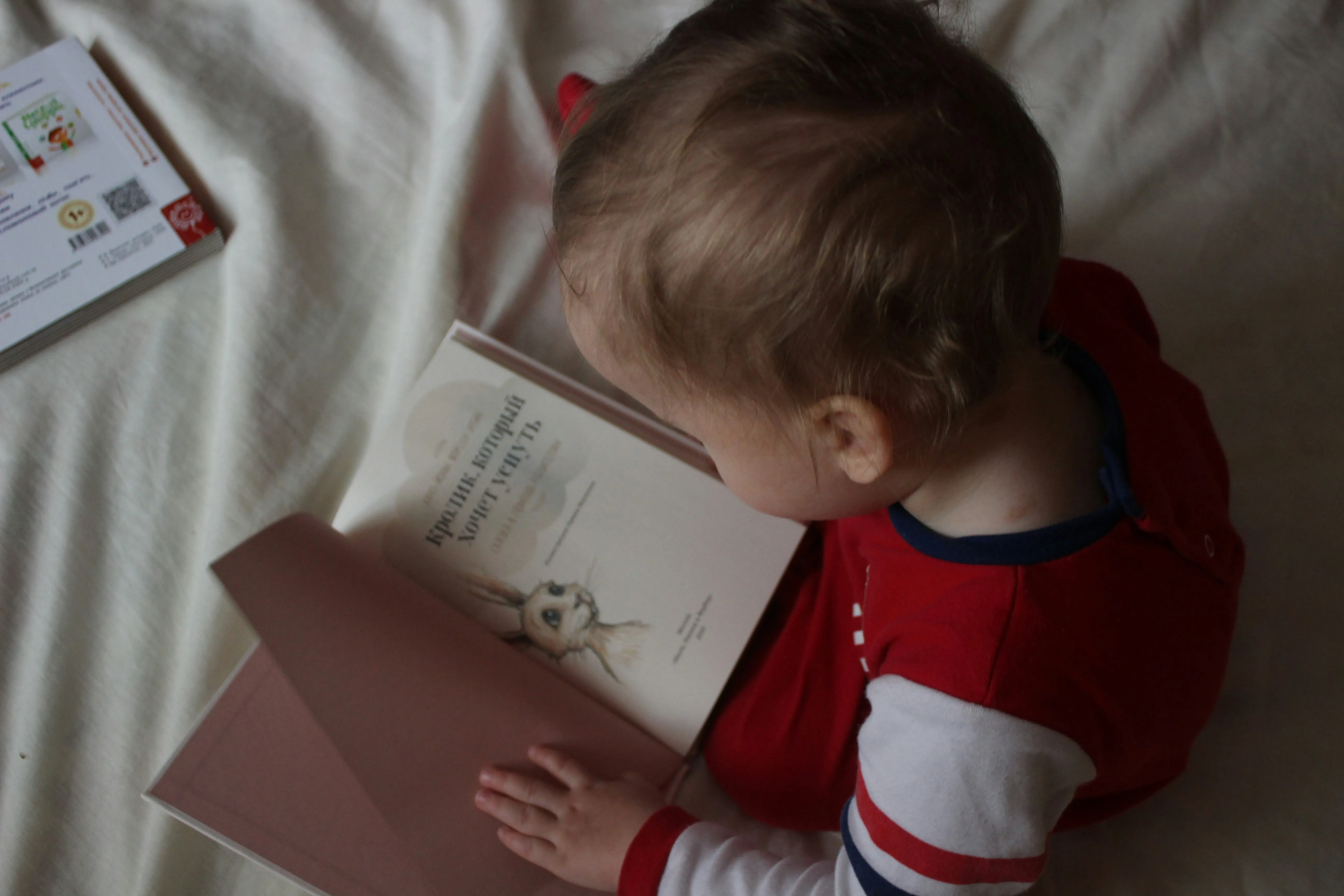Early Childhood Cognitive Development: Key Stepping Stones
Early Childhood Cognitive Development: Key Stepping Stones

Early childhood cognitive development is a fascinating and critical period in a child's growth. During this time, children experience significant changes in their cognitive abilities, which lay the foundation for future learning and academic success. From the prenatal stage to 36 months, important cognitive stepping stones are reached, setting the stage for cognitive growth during early childhood. In this blog, we will explore the key stepping stones in early childhood cognitive development, the role of speech and language skills, the impact of sounds and sights, the importance of consistent exposure to speech and language, the most important cognitive skills for a child, the stages of cognitive growth, the impact of early education, the role of nutrition and fitness, and how parents can support their child's cognitive development.
Understanding Early Childhood Cognitive Development

During early childhood, children go through cognitive changes that shape their ability to process information, problem-solve, and learn new skills. Cognitive development during early childhood refers to the growth of cognitive abilities, including language development, memory, attention, and reasoning skills. These cognitive changes pave the way for cognitive development during early childhood, setting the stage for greater depth of learning experiences in the years to come. As children grow, their cognitive growth in early childhood becomes more complex, allowing them to navigate the world around them and develop essential cognitive skills.
The Importance of Cognitive Development in Early Childhood
Early cognitive development plays a crucial role in a child's overall development. It forms the basis for cognitive growth in early childhood and affects various aspects of a child's life, from school performance to social interactions. Cognitive development in early childhood education is essential as it shapes a child's ability to adapt to cognitive stepping stones. The earliest years of cognitive development lay the groundwork for greater depth of learning experiences, enabling children to grasp new information, problem-solve, and develop cognitive skills.
As children grow, their cognitive abilities in early childhood become more sophisticated, allowing them to understand complex concepts, think critically, and engage in scientific reasoning. Cognitive development during early childhood is also crucial for language development, as children learn to communicate and express their thoughts and emotions. Moreover, cognition in early childhood is intertwined with social and emotional development, enabling children to navigate social interactions, understand others' perspectives, and regulate their own emotions.
The Crucial Period from Prenatal to 36 months for Cognitive Development
The first few years of a child's life, from prenatal to 36 months, are a crucial period for cognitive development. During this time, the brain undergoes rapid growth and development, laying the foundation for cognitive abilities in early childhood. Prenatal cognitive development is influenced by various factors, including genetics, exposure to language, and the child's environment.
As infants transition into early childhood, the brain undergoes significant changes, forming new connections and pathways that support cognitive growth. The first months of age play a significant role in shaping cognitive development during early childhood, with each developmental stepping stone building upon the previous ones. Individual differences in cognitive abilities also emerge during this period, highlighting the importance of early cognitive development in setting the stage for future learning and cognitive growth.
Cognitive learning in early childhood is shaped during the initial years, with the brain's plasticity allowing for rapid development and adaptability. It is during this time that children begin to explore, engage with their environment, and interact with others, all of which contribute to their cognitive development skills in early childhood. By providing children with a nurturing and stimulating environment, parents and caregivers can support their cognitive development during this crucial period.
Key Stepping Stones in Early Childhood Cognitive Development

During early childhood, there are key cognitive stepping stones, or stepping stones, that children typically reach as they develop cognitive abilities. These stepping stones are important markers of cognitive development in early childhood education and play a significant role in a child's overall growth and learning experiences. By understanding these cognitive stepping stones, we can better support children in their cognitive development during early childhood years, setting them up for success in school and beyond.
The Role of Speech and Language Skills
Speech and language skills play a vital role in cognitive development during early childhood. Language learning is not only a means of communication but also an integral part of cognitive development in early childhood education. Through language, children acquire new vocabulary, learn to express their thoughts and ideas, and develop cognitive skills such as problem-solving and critical thinking.
Cognitive development in early childhood education involves pattern recognition in language learning. By recognizing patterns in sounds, words, and sentences, children develop cognitive abilities that allow them to understand and generate language. This cognitive development during early childhood helps children make sense of the world around them, communicate effectively, and think abstractly.
Consistent exposure to speech and language from others is crucial for cognitive development during early childhood. By engaging in daily interactions with parents, caregivers, and peers, children have the opportunity to hear different words, sentence structures, and language concepts. Through these consistent interactions, children develop language skills that support their cognitive growth. Parents can enhance their child's cognitive development during early childhood by providing a language-rich environment, engaging in conversations, and reading aloud.
The Impact of Sounds and Sights in Cognitive Development

The impact of sounds and sights plays a significant role in cognitive development during early childhood. As children explore their environment, they are exposed to various sensory experiences that stimulate their cognitive abilities. Here are some ways in which sounds and sights contribute to cognitive learning in early childhood:
- Sensory experiences: Engaging with different sounds and sights offers children new and exciting experiences that foster cognitive growth. Whether it's listening to music, observing nature, or exploring art, these sensory experiences activate different areas of the brain, leading to cognitive development.
- Cognitive learning in early childhood: Sounds and sights provide children with opportunities to learn and make sense of the world around them. By observing objects, people, and events, children develop cognitive abilities such as pattern recognition, problem-solving, and memory.
- Development of language skills: Exposure to sounds and sights helps children build their vocabulary, understand concepts, and develop language skills. Through interactions with their environment, children learn new words, categorize information, and develop cognitive skills related to language acquisition.
- Enhanced cognitive abilities: The impact of sounds and sights extends beyond language development. It also stimulates cognitive abilities such as attention, concentration, and spatial awareness. For example, listening to music can improve children's ability to focus and understand different rhythms, while engaging in visual stimuli, such as puzzles, can enhance problem-solving skills.
- Cognitive development in different settings: Exposing children to a variety of sounds and sights in different settings, such as museums, parks, or even daily interactions, provides them with rich cognitive learning experiences. These experiences help children connect new information with what they already know, fostering cognitive development and expanding their knowledge and skills.
Consistent Exposure to Speech and Language from Others

Enhancing cognitive development in early childhood, consistent language exposure plays a crucial role. Quality interactions are vital during this developmental phase, shaping cognitive abilities. Exposure to diverse languages fosters cognitive stepping stones, benefiting early childhood education. Daily interactions in varied settings contribute significantly to cognitive development. This first-hand experience with different languages enriches the theory of cognitive development.
The Most Important Cognitive Skills for a Child
Ensuring a child's brain development through first-time experiences is crucial to hitting developmental stepping stones. Building number sense on a daily basis lays the foundation for school-age cognitive stepping stones. Understanding the theory of cognitive development helps navigate a local school district's educational landscape. Prioritizing cognitive skills on a daily basis is essential for a child's growth.
Identifying the Essential Cognitive Skills
Identifying essential cognitive skills in early childhood lays the foundation for brain development and sets the stage for school environment adaptation. It involves understanding individual differences in cognitive skills, problem-solving abilities, and the formation of cognitive stepping stones. These skills are crucial for the developmental stepping stones and theories of cognitive development, impacting a child's daily basis and school age growth.
The Effect of these Skills on Future Success
The early years of brain development lay the foundation for school setting adaptation, shaping cognitive stepping stones crucial for future success. The relevance of cognitive skills in early childhood education is evident in school district adaptation, impacting a child’s cognitive abilities on a daily basis. This underscores the significance of cognitive development in a child's first time developmental stepping stones, influencing their knowledge acquisition and theory of cognitive development.
Stages of Cognitive Growth in Early Childhood
The cognitive stepping stones in early childhood mark significant brain development. Understanding the theory of cognitive development helps in identifying these stepping stones. From the first time a child grasps a concept to acquiring number sense, each developmental stepping stones contributes to their growth. These stages occur on a daily basis and are crucial for future school age success within the local school district.
A look at the Four Stages of Growth
Throughout early childhood, children experience significant changes in their cognitive development, marked by sequential growth in skills. Each child progresses at their own pace, experiencing cognitive stepping stones differently. This foundation for learning experiences shapes their understanding of the world, a vital part of their first time in a structured educational environment.
Why Early Focus on Cognitive Skills is Crucial
Scientific reasoning heavily relies on cognitive development skills in early childhood. These learning experiences in the early years are crucial for cognitive growth and the establishment of cognitive stepping stones. Early childhood education marks the first time these developmental stepping stones are achieved, forming the basis for subsequent cognitive development on a daily basis within the school district and local school district.
The Impact of Early Education on Cognitive Development

Early education plays a crucial role in brain development, impacting cognitive stepping stones. Introducing children to learning experiences at an early age sets the stage for their future academic success. The school district's approach to teaching number sense and theory of cognitive development supports children on a daily basis, contributing to their overall cognitive development.
School Activities that Promote Cognitive Development
In a school setting, young children's cognitive learning thrives, nurtured by social play and pretend play. Pattern recognition enhances cognitive development skills, while visits to natural history museums promote the development of cognitive abilities. These activities contribute to brain development and are vital for reaching developmental stepping stones. Implementing these strategies in the local school district can aid in achieving cognitive stepping stones on a daily basis.
How Early Education Shapes a Child's Development
Shaping a child’s development through early education involves considering individual differences for cognitive skills development. Introducing new skills during early childhood education influences cognitive growth and developmental stepping stones. The school environment and various learning experiences play a pivotal role in shaping cognitive stepping stones on a daily basis, impacting brain development and the theory of cognitive development.
The Role of Nutrition and Fitness in Cognitive Development

The foundation of cognitive development is laid through nutrition and fitness in early childhood. Both aspects crucially influence cognitive growth, impacting a child’s ability to engage in physical activities and attain developmental stepping stones. Nutrition plays a pivotal role in brain development, contributing to cognitive stepping stones. Similarly, regular physical activity stimulates cognitive growth, enhancing a child's number sense and promoting the theory of cognitive development.
Why Nutrition is Key for Cognitive Development
Proper nourishment is crucial for cognitive growth in early childhood. The child's diet significantly influences cognitive development, impacting skills and stepping stones. Healthy eating habits support brain development and the theory of cognitive development. Nutrition during early childhood lays the foundation for cognitive stepping stones and number sense. It is vital for disease control and overall well-being on a daily basis within the local school district.
How Can Parents Support Their Child's Cognitive Development?

Supporting cognitive development in early childhood is crucial for parents. Quality interactions, educational play, and everyday experiences with parents foster cognitive growth. It's also a great way for parents to engage with their children.
Frequently Asked Questions
What are examples of cognitive development?
Examples of cognitive development in early childhood include the understanding of object permanence, problem-solving skills, and memory development. Children learn that objects still exist even when they're out of sight, use reasoning to overcome obstacles, and develop both short-term and long-term memory abilities.
How can parents encourage healthy cognitive development in their children?
Ways for parents to foster healthy cognitive development in children include creating a stimulating environment with age-appropriate activities, engaging in interactive play and conversation, reading regularly, and promoting outdoor play and physical activity.
What are some key cognitive stepping stones in early childhood development?
Key cognitive stepping stones in early childhood development include understanding object permanence, using symbolic thinking, developing executive function skills, and nurturing social-emotional development. These stepping stones pave the way for higher-level cognitive abilities and lay a strong foundation for future academic success.
What are some warning signs of developmental delays in early childhood?
Warning signs of developmental delays in early childhood include delayed speech/language skills, difficulty with fine/gross motor skills, poor social interaction, and lack of interest in age-appropriate activities/toys. These signs may indicate the need for further assessment and early intervention.
Why Is Cognitive Development Important for a Child?
Cognitive development is crucial for a child as it forms the basis for future learning and academic success. It enhances problem-solving skills, decision-making abilities, and critical thinking. Additionally, it supports emotional regulation and social interaction. Early intervention and support can greatly impact a child's overall well-being.
What activities promote cognitive development in a child?
Engage in activities that foster cognitive development in children. Encourage reading and independent exploration, provide opportunities for problem-solving through puzzles and building blocks, stimulate conversation with open-ended questions, and promote creative expression through art, music, and imaginative play.
Conclusion
In conclusion, early childhood cognitive development lays the foundation for a child's future learning and success. It is a crucial period where children acquire essential skills and abilities that shape their cognitive growth. Speech and language skills, exposure to sounds and sights, and consistent interaction with others play a significant role in cognitive development. Identifying and nurturing these cognitive skills early on can have a lasting impact on a child's future achievements. Early education, nutrition, and fitness also play vital roles in supporting cognitive development. As parents, you can support your child's cognitive development through engaging activities, providing a stimulating environment, and seeking early intervention if needed. Remember, cognitive development is important as it sets the stage for a child's overall growth and prepares them for future learning and challenges.
- [ ] Explore the key stepping stones in early childhood cognitive development
- [ ] Discuss the role of speech and language skills
- [ ] Examine the impact of sounds and sights on cognitive development
- [ ] Highlight the importance of consistent exposure to speech and language
- [ ] Identify the most important cognitive skills for a child
- [ ] Explain the stages of cognitive growth
- [ ] Discuss the impact of early education on cognitive development
- [ ] Explore the role of nutrition and fitness in cognitive development
- [ ] Provide tips for parents to support their child's cognitive development






































































































































